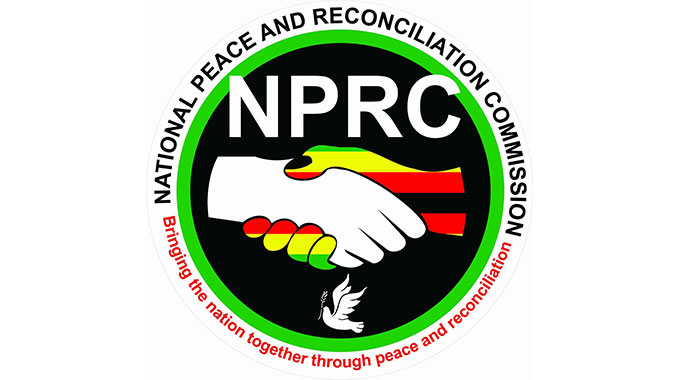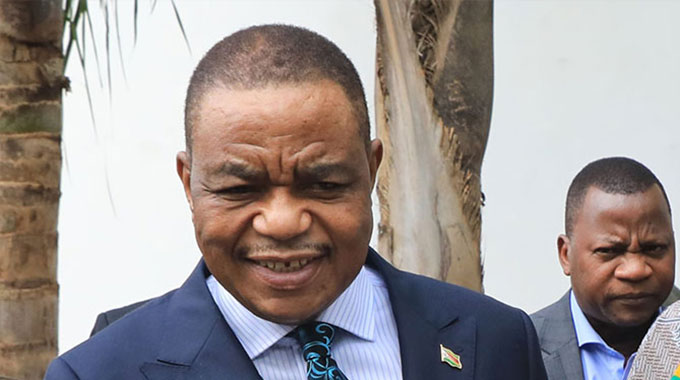Letters to the Editor: Reflecting on hope, peace

Elliot Ziwira
IT may be so that raging storms torment us, hunger numb us, and hardships pursue us as if they were meant only for us; but all that and more cannot defeat hope, for no condition is permanent.
As a people, all that we treasure and aspire for only flourish in an environment of peace, because violence, intolerance and hate have never been known to build nations. Where violence abound, be it physical, psychological, emotional or mental, the desire to move forward is scuttled. Without peace we are doomed, and with doom hopelessness comes.
Which is the reason why President Mnangagwa’s visit to Bulawayo where he met civic society organisations from Matabeleland last week, goes a long way in nation building, where frankness becomes the order of the day.
A lot may have happened, indeed, they have; there are moments that we rather would not want to remember, but memory, like that voice of reason hidden in the dark recesses of the soul, cannot be subdued. The need for sincerity and candidness should not in any way be seen to be an impediment to that closure we seek in our collective struggles. Conflict resolution is a collective effort where the wronged and those said to have been in the wrong are given platforms to air their views.
It is here that the National Peace and Reconciliation Commission (NPRC), comes into play, not so much as an enforcer, but a mediator who allows parties to find each other, for indeed, there is greater need now to find each other. So far, notwithstanding initial glitches that come with teething, the Commission has not disappointed. Peace-building is not a one day event; it is a process.
Last year, the NPRC set up peace committees across the country’s 10 provinces, with the view to allow communities to reflect on what pulls them apart, and use such as the starting point to conflict resolution.
The peace committees comprise stakeholder representatives from political parties, traditional leaders, religious organisations, Government departments and the Police. The Commission is set to have training sessions with peace committees across the country’s provinces, beginning with Manicaland, from today up to around April 1.
With each province being given a chance at resolving conflicts peculiar to it under a Commissioner, the need arises to be honest and sincere in telling that story which brings us together as a nation.
Social media platforms, like Facebook, Twitter, Instagram and WhatsApp create ‘heroes’, with penchants to beam firestorms of the blasts in our midst; the explosions of our dreams, through gold-rimmed spectacles, and project them on gargantuan screens on the anthills of our suffering, which has been induced by the same people for political expediency, over glasses of whisky and in whiffs of rich cigar smoke. That is not what we aspire for. Let us all come together and tell our story; the story of peace and nation building.
Social media ‘heroes’ who seek to harvest truckloads, nay shiploads of “likes” at our expense, should be ignored, for they are divorced from the reality of our land; the reality of our struggles.
As a nation wouldn’t we be mature enough to enlighten ourselves and our young people on the essence of peace, not by snatching explosives from them, but by impressing on them that nothing has ever been born of violence, except more violence; and that weapons are dangerous no matter in whose hands they are?
Truly, hope is the aviator of our dreams, without which all our aspirations are doomed. As certain as the sun shall rise tomorrow – indisputable as the fact that death flourishes in life – and that hurt is love’s bedfellow, hope should always be given a chance, although many a time it may seem hopeless; so that our cherished flowers do not perish in the dry season of our toils.
Indeed, pain is the forerunner to gain, moss the zenith of loss; and the rainbow, God’s promise not to bring another deluge of Noah’s days, comes after a storm.
We all want to be happy and lead fruitful lives, true, but who is responsible for that happiness or its absence in our lives? Happiness is a condition or state of mind rather, whose existence cannot be hidden, but whose source is ensconced in our hearts; no matter how many heartbreaks life might have dropped our way.
There are seasons in life, different seasons surely, but each of them comes as a result of the receding and passing of another; such is the circle of things. We plant our flowers in the rainy season, hoping that the dry season might not see us napping; without giving much heed to the tempests that come with the rains, scuttling our hopes, uprooting them and exposing them for all and sundry to have a field day at our expense; yet all our fears manifest in the dry season.
But can it be trite to say that it is the dry season that teaches us to store our grain, and to pick the best seeds in preparation for the vagaries that nature strews our way? A good flower is not determined by the way it blooms in spring, nor the way it luxuriates in summer, but by the way it withstands the dry season. If it is born of a weak seed, that cracks open in the wake of the scorching sun, then the farmer’s joy is only but ephemeral.
Fate gives no man no choice, as the deck of life deals cards randomly; making every hand a winner, and every hand equally a loser. It is up to all of us to turn the odds to our favour by playing well those cards dealt to us and paying close attention to how others play theirs.
Downpours may always seem to be meant for us in equal measure to the shimmering sun on our sprouting flowers, but it is in such situations that our mettle is tested. And to start with gentle citizen, friend, and countryman, reflect on what makes us one; on our nationhood and locate yourself in the miasmic orbit that takes your dreams to heights untold. Our possibilities as a nation are limitless, if our desire is to be better than we were yesterday. And for that to happen we need peace.










Comments